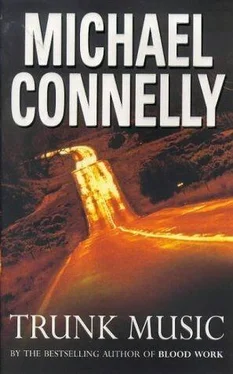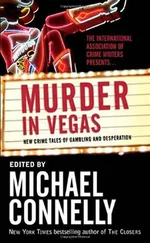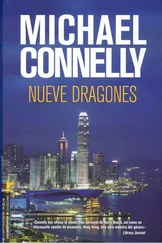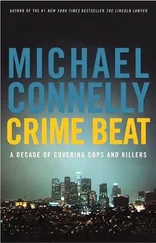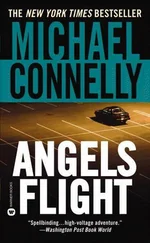“Detective Bosch,” Fitzgerald said. “I know of you. Know of your exploits. Over the years you have been suggested to me more than once as a candidate for our unit.”
“Why didn’t you call?”
Carbone had come around and gotten in the driver’s seat. He started moving the car slowly through the lot.
“Because like I said, I know of you,” Fitzgerald was saying. “And I know you would not leave homicide. Homicide is your calling. Am I correct?”
“Pretty much.”
“Which brings us to the current homicide case you are pursuing. Dom?”
With one hand, Carbone passed a shoebox over the seat. Fitzgerald took it and put it on Bosch’s lap. Bosch opened it and found it full of audiocassette tapes with dates written on tape stuck to the cases.
“From Aliso’s phone?” he asked.
“Obviously.”
“How long were you on it?”
“We’d only been listening for nine days. It hadn’t been productive, but the tapes are yours.”
“And what do you want in return, Chief?”
“What do I want?”
Fitzgerald looked out the window, down at the railroad switching yard in the valley below the parking lot.
“What do I want?” he asked again. “I want the killer, of course. But I also want you to be careful. The department’s been through a lot these past few years. No need to hang our dirty laundry in public once again.”
“You want me to bury Carbone’s extracurricular activities.”
Neither Fitzgerald nor Carbone said anything but they didn’t have to. Everybody in the car knew that Carbone did what he did on orders. Probably orders from Fitzgerald himself.
“Then you’ve got to answer some questions.”
“Of course.”
“Why was there a bug on Tony Aliso’s phone?”
“Same reason there’s a bug on anyone’s phone. We heard things about the man and set about finding out if they were true.”
“What did you hear?”
“That he was dirty, that he was a scumbag, that he was a launderer for the mob in three states. We opened a file. We had just begun when he was killed.”
“Then when I called, why did you pass on it?”
Fitzgerald took a long pull on his cigar and the car filled with its smell.
“There’s a complicated answer to that question, Detective. Suffice it to say that we thought it best if we remained uninvolved.”
“The tap was illegal, wasn’t it?”
“It is extremely difficult under state law to gather the required information needed for a wiretap. The feds, they can get it done on a whim. We can’t and we don’t want to work with the feds all the time.”
“It still doesn’t explain why you passed. You could’ve taken the case from us and then controlled it, buried it, done whatever you wanted with it. No one would have known about illegal wiretaps or anything else.”
“Perhaps. Perhaps it was a wrong choice.”
Bosch realized they had underestimated himself and his crew. Fitzgerald had believed the break-in would go unnoticed and therefore his unit’s involvement would not be discovered. Bosch understood the tremendous leverage he held over Fitzgerald. Word about the illegal wiretap would be all the police chief would need to rid himself of Fitzgerald.
“So what else do you have on Aliso?” he asked. “I want everything. If I hear at any point you held something back, then your little-black-bag job is going to get known. You know what I mean? It will get known.”
Fitzgerald turned from the window and looked at him.
“I know exactly what you mean. But you are making a mistake if you are going to smugly sit there and believe you have all the high cards in this game.”
“Then put whatever cards you have on the table.”
“Detective, I am about to fully cooperate with you, but know this. If you seek to hurt me or anyone in my division with the information you get here, I will hurt you more. For example, there’s this matter of your keeping company last night with a convicted felon.”
He let that hang in the air with his cigar smoke. Bosch was stunned and angry but managed to swallow down his urge to throttle Fitzgerald.
“There is a department prohibition against any officer knowingly associating with criminals. I’m sure you know that, Detective, and understand the need for such a safeguard. If this were to become known about you, then your job could be in jeopardy. Then where would you and your mission be?”
Bosch didn’t answer. He looked straight ahead, over the seat and out the front window. Fitzgerald leaned over so that he was almost whispering in his ear.
“This is what we know about you in just one hour,” he said. “What if we spend a day? A week? And it’s not just you, my friend. You can tell your lieutenant that there is a glass ceiling in the department for lesbians, especially if something like that should get out. Now her girlfriend, she could go further, her being black. But the lieutenant, she’d have to get used to Hollywood, you ask me.”
He leaned back to his spot and returned his voice to normal modulation.
“Do we have an understanding here, Detective Bosch?”
Bosch turned and finally looked at him.
“We have an understanding.”
After dropping the bullets retrieved from Tony Aliso’s head at the ballistics lab in Boyle Heights, Bosch made it back to the Hollywood Division just as the investigators were gathering in Billets’s office for the six o’clock meeting. Bosch was introduced to Russell and Kuhlken, the two fraud investigators, and everybody sat down. Also sitting in was a deputy district attorney. Matthew Gregson was from Special Prosecutions, a unit that handled organized crime cases as well as the prosecution of police officers and other delicate matters. Bosch had never met him.
Bosch gave his report first and concisely brought the others up to date on the occurrences in Las Vegas as well as the autopsy and his swing by the department’s gun shop. He said he’d been promised that the ballistics comparison would be done by ten the following morning. But Bosch made no mention of his meetings with Carbone and Fitzgerald. Not because of the threat Fitzgerald had made-or so Bosch told himself. But because the information he had gleaned from those meetings was best not discussed with such a large group in general and a prosecutor in particular. Apparently, feeling the same way, Billets asked him no questions in this regard.
When Bosch was finished, Rider went next. She said she had talked to the IRS auditor assigned to the TNA Productions case and gotten very little information.
“Basically, they have a whistle-blowing program,” she said. “You blow the whistle on a tax scofflaw and you get a share of whatever taxes the IRS finds it’s been cheated out of. That’s how this started. Only problem is, according to Hirschfield, he’s the IRS guy, this tip came in anonymously. Whoever blew the whistle didn’t want a share. He said they got a three-page letter outlining Tony Aliso’s money-washing scam. He would not show it to me because he claimed, anonymous or not, the guidelines of the program call for strict confidence and the specific language of the letter could lead to identification of the author. He-”
“That’s bullshit,” Gregson said.
“Probably,” Rider said. “But there was nothing I could do about it.”
“Afterwards, give me the guy’s name and I’ll see what I can do.”
“Sure. Anyway, they got this letter, did some preliminary looking at TNA’s corporate filings over the years and decided the letter had merit. They sent the audit letter to Tony on August 1 and were going to do him at the end of this month. That was it with him-oh, the one thing he would tell me about the letter was that it was mailed from Las Vegas. It was on the postmark.”
Читать дальше
